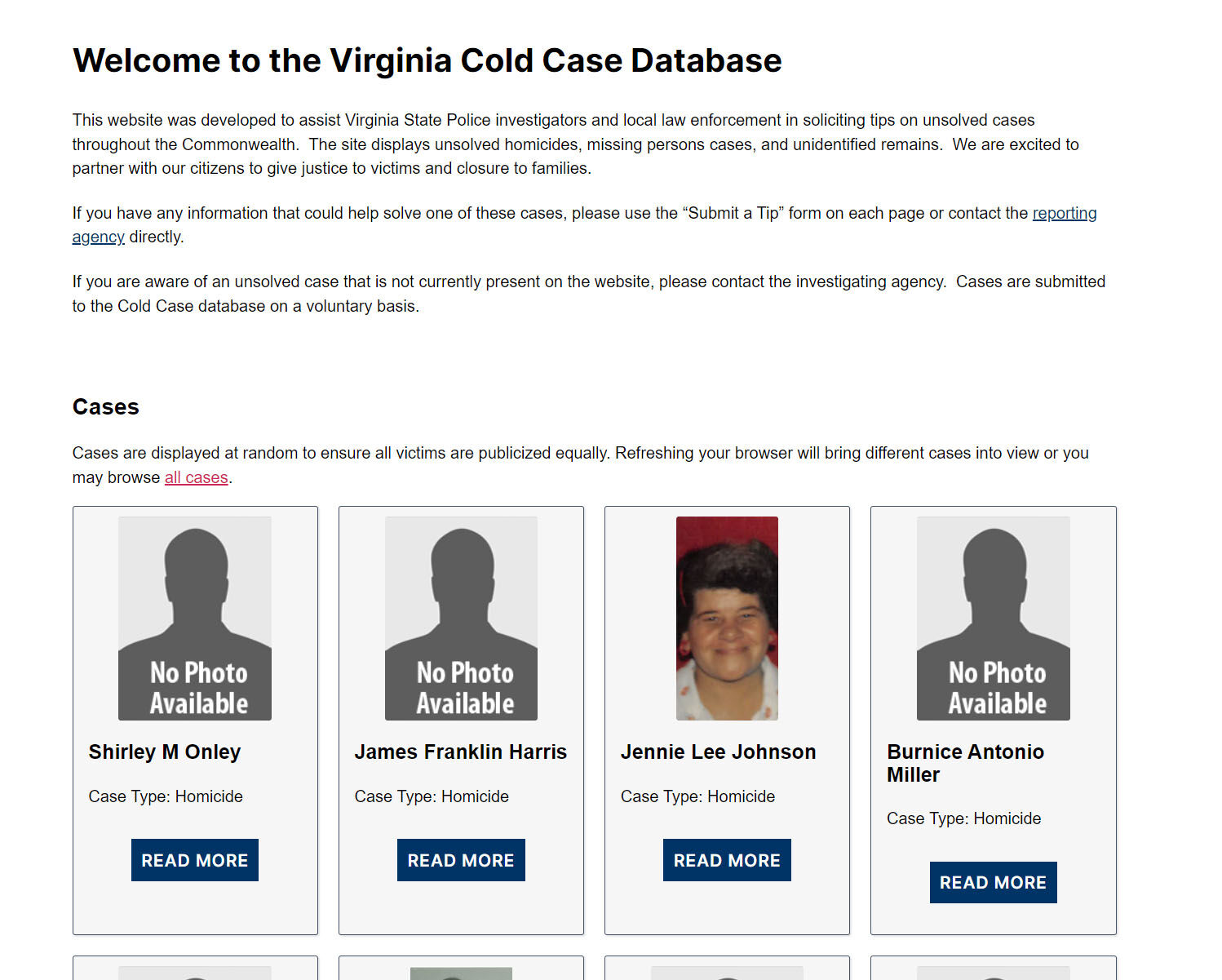Unlike true-crime television programs, most murders and missing persons cases aren’t solved in an hour — Virginia is hoping public awareness and participation can help solve some of the commonwealth’s “cold cases.”
Virginia State Police just launched the first version of its online searchable database to solicit tips on unsolved cases throughout the commonwealth.
State Del. Danica Roem (D-Prince William) introduced the 2020 bill — HB 1024 — which authorized the state police agency to develop the database, “so that the public would be able to see what unsolved homicides, missing persons and unidentified persons cases are actually out there, and to help state police solve these crimes and missing people cases.”
Currently, the database is limited to 39 cases being investigated by state police, according to Roem: “They’re very much expecting to be working with local law enforcement — sheriff’s departments or local police — so that more of our homicides, missing persons and unidentified persons cases from the localities are going to be included as well.”
The database includes short descriptions, dates and other identification information, as well as a way for viewers to provide information.
Cases include:
- The 1984 stabbing of Virginia State Trooper Johnny Rush Bowman, who was stabbed 45 times by an unknown attacker after answering the door at his home in Manassas, around 4:15 a.m.
- The 1982 Loudoun County murder of Veronica Hepworth, whose body was found in a driveway along U.S. 50 near Gilbert’s Corner

Other high-profile cases include the 1980 disappearance of Gina Renee Hall, in Pulaski County. Although Stephen Epperly has been convicted and sentenced to life in prison, Hall’s remains have never been found.
“At my age, at 37, for those of us who grew up watching ‘America’s Most Wanted,’ people would get really involved, and every now and then they’d get a tip that would end up solving a crime,” Roem said.
Roem said the state police database doesn’t “have the glitz of a national broadcast storyline, I want people to remember these are real people who were murdered, real people who were unidentified when their remains were found, real people who went missing.”
She added, “As a matter of justice, and as a matter of just human decency, we need cloture on these stories.”
Roem said the database didn’t cost much — her initial budget request was for $100,000 — but she said it could be a “game changing” investment.
“If we bring closure to one family, if we bring a perpetrator to justice in just one case, then the whole thing is worth it,” she said.








